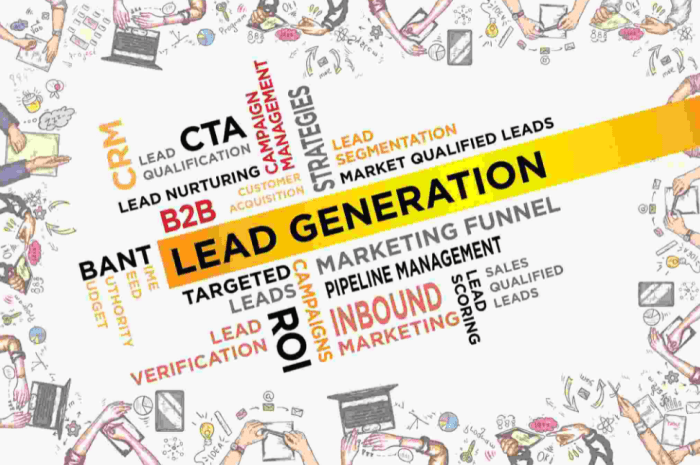Lead generation for service companies is a critical element in driving growth and sustainability in an increasingly competitive landscape. Understanding the unique challenges that service businesses encounter in generating leads is essential for creating effective strategies. Unlike product-based companies, service providers must focus on building relationships and showcasing their expertise to attract potential clients.
This article explores various methods and best practices tailored specifically for service companies, highlighting the importance of leveraging technology, crafting a strong online presence, and utilizing effective networking strategies. With the right approach, service providers can transform their lead generation efforts and foster long-term client relationships.
Understanding Lead Generation for Service Companies
Lead generation is a critical process for service companies aiming to grow their customer base and sustain their business. It refers to the strategies and actions taken to attract potential clients and convert them into leads. The importance of lead generation lies in its ability to create a continuous flow of prospective customers, ensuring that businesses have a steady stream of opportunities to convert into sales.
Service companies often face unique challenges in lead generation. Unlike product-based businesses, which can rely on tangible items to attract customers, service companies must communicate the value of intangible offerings. Common challenges include differentiating their services in a crowded market, building trust without a physical product, and managing longer sales cycles. Furthermore, the lead generation strategies for service-based businesses differ significantly from those of product-based companies due to their service-oriented nature and the need for relationship building.
Effective Strategies for Lead Generation
To successfully generate leads, service companies can utilize a variety of strategies tailored to their specific offerings. Each method has its own strengths and can be leveraged based on the target audience and service category. Some effective lead generation methods for service companies include:
- Networking Events: Attending industry events allows service companies to connect directly with potential clients and showcase their expertise.
- Content Marketing: Producing valuable content, such as blogs, e-books, and webinars, can position a company as a thought leader and attract interested leads.
- Social Media Engagement: Actively engaging with audiences on platforms like LinkedIn and Facebook can help service companies reach a broader audience.
- Email Marketing: Sending targeted email campaigns to prospective clients can nurture relationships and guide leads through the sales funnel.
Best practices for utilizing social media include creating informative posts, engaging with followers through comments and messages, and advertising services to targeted demographics. Additionally, content marketing plays a vital role in attracting potential clients by providing valuable insights and solutions to their problems, effectively drawing them into the company’s ecosystem.
Utilizing Technology for Lead Generation
The advent of technology has greatly enhanced the lead generation process for service companies. Various tools and software can assist in identifying and nurturing leads more efficiently. Key technologies include:
- Customer Relationship Management (CRM) Systems: These systems help track interactions with leads, manage customer data, and streamline communication.
- Marketing Automation Tools: Automation software can handle repetitive tasks such as email campaigns and social media posting, allowing teams to focus on strategy.
- Landing Page Builders: Simplified tools for creating dedicated landing pages can optimize conversion rates for specific campaigns.
- Analytics Software: Utilizing analytics can provide insights into lead behavior and effectiveness of different generation strategies.
The benefits of using CRM systems extend beyond just managing leads; they facilitate better communication and personalized interactions, enhancing the overall customer experience. Furthermore, automation not only saves time but also ensures consistent follow-up, which is crucial for converting leads into clients.
Building a Strong Online Presence, Lead generation for service companies
An optimized online presence is essential for effective lead generation. To achieve this, service companies should follow a structured approach:
- Website Optimization: Ensure the website is user-friendly, mobile-responsive, and fast-loading to keep potential clients engaged.
- Compelling Landing Pages: Create landing pages that clearly articulate the value proposition, include strong calls to action, and minimize distractions.
- Search Engine Optimization (): Implement best practices to improve search engine rankings, making it easier for potential leads to find the service online.
A checklist for creating compelling landing pages might include elements like a clear headline, persuasive copy, testimonials, and an easy-to-find contact form. Improving search engine visibility involves research, on-page optimization, and building backlinks from reputable sources, all of which can significantly increase organic traffic.
Networking and Relationship Building

Networking plays a crucial role in lead generation for service companies. Establishing connections within the industry can lead to referrals and collaborative opportunities. Effective strategies for networking include:
- Joining Professional Associations: Participating in organizations related to the service industry can expand a company’s reach and credibility.
- Strategic Partnerships: Collaborating with complementary businesses can create mutually beneficial opportunities for lead sharing.
- Follow-Up Communication: Regular follow-ups with leads can nurture relationships and keep the company top-of-mind.
Establishing partnerships with businesses that offer complementary services can enhance lead generation efforts. For instance, a web design company may partner with a digital marketing agency to refer clients to each other, expanding their respective client bases.
Measuring and Analyzing Lead Generation Success
To evaluate the effectiveness of lead generation efforts, companies must track key performance indicators (KPIs). Important KPIs include:
- Conversion Rate: The percentage of leads that become paying customers.
- Lead Source Performance: Analysis of where leads are coming from to determine the most effective channels.
- Cost per Lead: The total cost associated with generating a lead, which helps in assessing the value of different strategies.
Methods for analyzing lead generation strategies can include A/B testing, surveying leads about their experiences, and utilizing analytics tools to gather data. Customer feedback is invaluable for refining lead generation tactics and understanding client needs better.
Case Studies of Successful Lead Generation

Examining real-world examples of service companies that excel in lead generation can provide insights into effective practices. Successful service companies often utilize innovative tactics tailored to their target market.
- Company A, a digital marketing agency, utilized a referral program that incentivized existing clients to refer new clients, resulting in a significant increase in leads.
- Company B, a financial services firm, leveraged webinars to educate potential clients about financial planning, which positioned them as trusted advisors.
- Company C, a consulting agency, created high-value whitepapers that captured leads through gated content, ultimately leading to higher conversion rates.
These case studies illustrate how diverse lead generation approaches can yield success, highlighting the importance of adapting strategies to fit the unique needs of each service company and their market landscape.
Closing Summary: Lead Generation For Service Companies

In conclusion, effective lead generation for service companies hinges on a combination of strategic planning, innovative tactics, and consistent evaluation of performance. By embracing advanced tools and nurturing relationships, service providers can significantly enhance their lead generation outcomes. As the marketplace evolves, continually adapting and refining these strategies will ensure that service companies not only attract leads but also convert them into loyal clients.